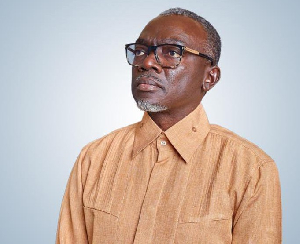This article draws inspiration from a testimony shared by a reader in response to a feature I wrote back in 2021 titled, “Varicocele: The Silent Male Infertility Battle.” After reading that piece, the reader reached out to me and shared her personal story, which inspired me to delve deeper into this topic. This new article aims to further explore the issue and raise greater awareness about this often-overlooked condition.
Helen and Joe (not their real names) married in 2009, four years after completing their mandatory national service following graduation from university. Their paths first crossed at a work-related event, where they ended up sitting together. That initial encounter quickly blossomed into a deep connection, and after just eight months of dating, they tied the knot.
“We were talking about marriage in the first week of meeting, and we definitely wanted children. We’d even decided on names,” Helen shared. Their wedding was a modest but beautiful celebration, and the joy they felt seemed unending. However, the dream of having children didn’t come as quickly as they had hoped. Year after year, Helen and Joe were faced with disappointment as pregnancy eluded them. Their anticipated joy turned into a seven-year struggle marked by heartbreak and frustration.
As Helen’s age advanced, so did her anxiety. She had married at 26, but as the years passed, her fears grew. “I desperately wanted children. My husband and I tried everything to have a baby. When we couldn't, we learned firsthand the stigma that comes with being a childless couple,” Helen recalled.
Desperate, they became regular visitors to fertility clinics, tried herbal remedies, and sought spiritual guidance—all to no avail. Helen’s handbag was often filled with ovulation kits and pregnancy tests, tools she became all too familiar with. But the result she longed for—a positive test with two lines—remained elusive.
“Come on. Come on. Two lines. That's all I wanted. Just two lines,” she lamented. But time and again, only one line appeared, and she would discard the test in frustration. “It was the first of several hundred trashed sticks in my decade-long attempt to have children.”
Helen faced whispers and judgment everywhere. Family, friends, colleagues, and even her church community offered unsolicited advice and pity. “People always had something to say. ‘Have sex throughout the month, relax more, sleep more, give gifts to children,’” Helen recounted. “Perhaps the most patronising advice was: ‘Just relax, have a drink, and it’ll happen.’”
The hardest part, though, was enduring the direct, hurtful questions: “Why don’t you have kids yet? Do you even want children? What is wrong with you?” These words cut deeply, adding to Helen’s pain.
Eventually, Helen sought medical help, but each specialist declared her healthy. Yet, the pregnancy tests continued to show just one line. “I started to doubt myself. I even thought my doctor was a fraud, so I found another specialist in Accra. He examined me and found me healthy, but still, I couldn’t conceive,” she said.
Infertility is often seen as a woman’s issue, especially in societies where childbirth is considered the ultimate outcome of marriage. This assumption needs to change. Both men and women should share the responsibility, and the stigma around infertility must be addressed. As Helen put it, “Women are more than mothers, and men are more than fathers.”
For Helen and Joe, discovering the cause of their infertility brought a mix of relief and renewed sadness. "It wasn’t just me," Helen said. "But it also meant we had wasted so many years thinking it was my fault."
Why varicocele is an issue?
Varicocele is the enlargement or extension of the veins that surround the spermatic cords—the cords the testes hangs on. It is a medical disorder that results in infertility in men.
Health experts say that varicoceles differ in sizes and can be categorised into three groups, namely large, moderate and small. According to some health journals, varicoceles generally form during puberty and are more commonly found on the left side of the scrotum. Although it can occur at both sides of the testes, its rarely happens due to the differences in the anatomy of the right and left sides of the scrotum.
For the majority of men with fertility problems, the cause remains unexplained – and stigma means many are suffering in silence. Research suggests the problem may be growing. Factors including pollution have been shown to affect men's fertility, and specifically, sperm quality – with potentially huge consequences for individuals, and entire societies.
Understanding varicocele
Dr. Isaac O. Asiedu, a urologist and kidney transplant surgeon at Korle-Bu Teaching Hospital, sheds light on the link between varicocele and male infertility, its symptoms, treatment options, and the available assistance for those affected.
According to Dr. Asiedu, varicoceles are linked to male infertility because they impact the testes, the primary site for sperm production. He explains that the enlarged veins around the testes can raise the scrotal temperature, leading to decreased sperm production, quality, and quantity. While the condition is common, it primarily affects men post-puberty, present in about 15 per cent of the general male population. However, up to 40 per cent of men undergoing infertility treatment have varicoceles.
Regarding its causes, Dr. Asiedu states that there isn't a single exact cause for varicoceles; rather, various factors contribute to their development. The condition is more common on the left side of the scrotum due to the unique structure of the internal spermatic vein, which forms a T-junction with the left renal vein, leading to increased hydrostatic pressure.
This pressure draws more blood into the left spermatic vein and the pampiniform plexus, affecting sperm quality. On the right side, the vein's angle with the inferior vena cava reduces such pressure, making varicoceles less common on that side. Defective valves in the veins can also lead to blood pooling and vein distension. Additionally, varicoceles can be a sign of an abdominal tumor compressing the internal spermatic vein.
Dr. Asiedu further explains that the testes are located outside the body to maintain a temperature conducive to sperm production. When blood pools around the testes due to enlarged veins, the increased temperature hampers sperm production and quality. Moreover, high hydrostatic pressure can compress arteries that supply oxygenated blood to the testes, reducing testicular volume and impacting sperm production.
Varicoceles are often asymptomatic but can be suspected if one side of the scrotum appears bulkier or feels like a "bag of worms." Pain in the groin area can also indicate varicocele, but a definitive diagnosis requires a doctor's examination and an ultrasound scan.
Treatment options for varicocele are primarily surgical. Dr. Asiedu mentions open varicocelectomy, where the enlarged veins are identified and blocked to prevent blood pooling. There are also advanced methods, such as using interventional radiology, where an electric coil is threaded into the affected vein to block it. Laparoscopic surgery is another option, using cameras and surgical instruments to address the issue through small abdominal incisions. All these treatment methods are available in Ghana.
On the broader issue of infertility, Dr. Asiedu notes that although it affects both men and women, society often places the blame on women. For instance, liteary works such as "The Joys of Motherhood" by Buchi Emecheta, "The Sex Lives of African Girls" by Taiye Selasi, and "Anowa" by Ama Atta Aidoo all explore the issues of stigma infertile couples, particularly women face in society.
For Dr. Asiedu, infertility should not lead to stigma, as women are more than mothers, and men are more than fathers. He admonished the public to be sympathetic towards couples struggling to conceive.
Helen and Joe’s journey wasn’t just about the physical struggle of infertility but also the emotional and societal challenges they faced. It’s a reminder that the pain of infertility can be deeply isolating, but also that we, as a society, must be more empathetic, supportive, and open about these challenges.
Writer’s email: zadokgyesi@gmail.com
LifeStyle of Friday, 18 October 2024
Source: Zadok Kwame Gyesi

















